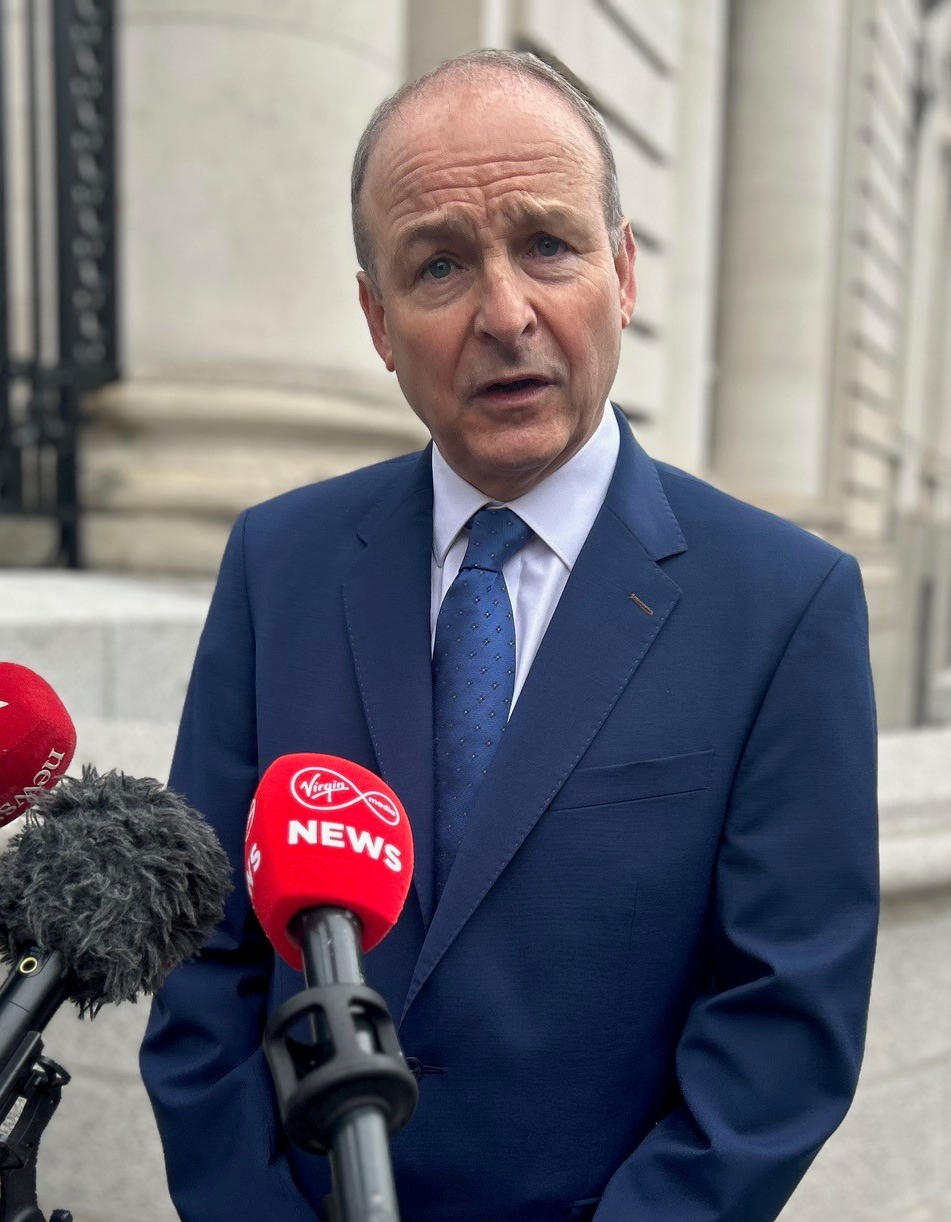Tariffs on pharmaceutical exports ‘will damage prospects’ of US firms in Ireland

By Cate McCurry, PA
Proposed US tariffs on pharmaceutical exports will damage the economic prospects of US companies in Ireland, the Taoiseach has warned.
Micheál Martin said consumers will have to pay more for medicines as threatened US tariffs will lead to high inflation.
Earlier this week, US President Donald Trump singled out Ireland’s pharmaceutical industry, suggesting there could be specific tariffs of pharmaceuticals.

He claimed the US “doesn’t make anything” when it comes to drugs and medicines.
Speaking in Limerick on Friday, Mr Martin said that tariffs and a trade war would “be very bad for the world economy”.
“In respect of the pharmaceutical industry, it is of long standing in Ireland, as indeed many technological companies are also, and it’s an integrated supply chain between the companies located here in Ireland and their US parents, and in some respects, the tariffs will potentially damage the companies themselves,” Mr Martin said.
“Many of the product made here is intermediate product, which is essential to the completion of products in the US.
“It will lead to high inflation and higher prices for medicines for consumers, and will damage the economic prospects for the companies insofar as they’ve embedded very substantial funding in the plants in Ireland.
“But hopefully, and the whole objective will be that these issues get resolved ultimately through negotiations and through discussions, obviously, primarily, between the European Union and the United States. But Ireland will also be engaging bilaterally with the US, and also, obviously, working with our EU colleagues.”
Ireland’s Minister for Transport said he does not anticipate that economic pressure from tariffs will impact on major infrastructure projects under the National Development Plan (NDP).
Darragh O’Brien said that a review of the NDP will begin soon and is expected to finish at the end of July.
I am intensively engaging with EU colleagues and stakeholders on the changed trade environment between the US and the EU. This morning I will host my Slovak counterpart, Juraj Blanár in Dublin. Slovakia is a country with a large car industry. A chance to share insights.
— Simon Harris TD (@SimonHarrisTD) March 28, 2025
Mr O’Brien said the threat of tariffs is “concerning” and will impact Ireland and the whole of Europe.
“It is a concern to listen to the istration in America talk specifically about pharmaceuticals. But look, this Government will do everything we can to protect our industries and our jobs,” Mr O’Brien added.
“We are coming from a strong position where we’ve near full employment, 2.8 million people working. Thankfully, we have been able to manage the economy well over the course of the last government, that we have significant surpluses that we are investing for our future.
“I don’t foresee a situation where investment in capital as such in the NDP would be impacted by the current geopolitical situation.
“We obviously have to continue to invest in our infrastructure to ensure our country continues to grow, businesses continue to grow, and that we can ensure that we have the infrastructure to underpin a modern economy and a modern society as well.
“We’ll be embarking on the review of the NDP very, very shortly, and the plan is to have that concluded by the end of July.”
Ireland’s trade minister said that the period of uncertainty and economic turbulence must be “kept to a minimum”, as he urged further engagement between the US and the European Union to avoid a trade war.
Simon Harris made the comments as he met with a delegation from the Slovak Republic, led by the minister of foreign and European affairs, Juraj Blanar, in Dublin on Friday.
The pair discussed bilateral relations, European co-operation and wider global challenges.
The Department of Foreign Affairs said that Slovakia is among the most impacted by the decision of the United States to impose 25 per cent tariffs on cars.
The car tariffs will come into effect on April 2nd, with charges on businesses importing vehicles starting next Thursday.
Taxes on parts are set to start in May or later.
In a statement, the Tánaiste said it is vital that the EU works together to “prepare for this changed trading environment”.
“Tariffs are bad for consumers and for our economies on both sides of the Atlantic,” he added.
“We need to ensure the period of uncertainty and economic turbulence is kept to a minimum and that as quickly as possibly the US and the EU engage to find a way forward that works and crucially works for all our people and our economies.”
The Tanaiste said he will speak to more European colleagues next week.
Speaking after his meeting with Mr Blanar, the Tánaiste said that relations between Ireland and Slovakia have deepened significantly.
“I look forward to further consolidating our relationship and stepping up cooperation within the EU as our Presidency of the Council in 2026 approaches,” he added.
“Strong European unity, including as a community of values, is now more important than ever.”
During his visit, Mr Blanar visited Trinity College Dublin and met with of the Slovakian community, including Joe Veselsky, aged 106, a Holocaust survivor of Slovak origin, who lives in Dublin.









